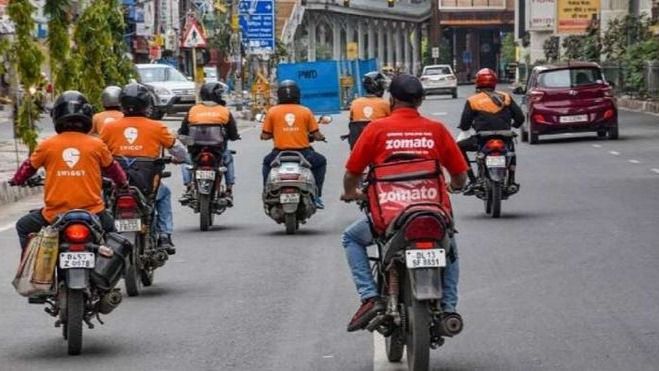GST Council Meeting: The 55th GST Council meeting, which took place on December 21 in Jaisalmer, Rajasthan, was anticipated to address a major issue concerning food delivery services. The proposal to reduce the Goods and Services Tax (GST) on food delivery charges from the current rate of 18% to 5% was under discussion.
However, Finance Minister Nirmala Sitharaman confirmed that no decision had been reached during the meeting, and the matter has been deferred for further deliberations by the Group of Ministers (GoM).
“Food delivery by e-commerce and quick commerce — taxation for delivery and taxation for food was deliberated. However, no decision has been taken yet. GST Council has not taken any decision on this, it has been deferred, the GoM will deliberate on this once again,” said the Finance Minister.
This development comes after months of requests from food delivery platforms to align the GST rates on their services with those of restaurant services. If the proposal is approved in future meetings, it is expected to offer significant relief to consumers who order food through e-commerce and quick-commerce platforms. The reduction would be effective from January 1, 2022, in line with recommendations from the GST Council’s fitment committee.
The reduction of the GST rate would result in a decrease in food delivery charges for consumers, making it a welcome change for those who frequently use online platforms like Zomato and Swiggy. However, the potential switch to a 5% GST rate without the ability for businesses to claim Input Tax Credit (ITC) could create challenges for e-commerce operators.
While the lower GST rate would benefit consumers, businesses may face increased tax burdens due to the inability to offset taxes through ITC.
Notably, smaller players in the market might be particularly vulnerable to the impact of the proposed changes. Without ITC, the overall tax burden on delivery services could rise, affecting the financial health of some businesses.
The proposal also carries the potential to resolve ongoing tax disputes between the GST authorities and leading food delivery platforms. Zomato, for example, is currently facing a Rs 803 crore GST demand from the Central Goods and Services Tax (CGST) authorities in Maharashtra, covering the period between October 29, 2019, and March 31, 2022. If the 5% GST proposal is implemented, it could reduce the amount of tax Zomato owes for the last three months of that period, recalculating the GST at a lower rate.
